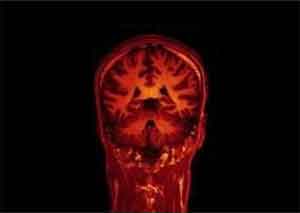- Home
- Editorial
- News
- Practice Guidelines
- Anesthesiology Guidelines
- Cancer Guidelines
- Cardiac Sciences Guidelines
- Critical Care Guidelines
- Dentistry Guidelines
- Dermatology Guidelines
- Diabetes and Endo Guidelines
- Diagnostics Guidelines
- ENT Guidelines
- Featured Practice Guidelines
- Gastroenterology Guidelines
- Geriatrics Guidelines
- Medicine Guidelines
- Nephrology Guidelines
- Neurosciences Guidelines
- Obs and Gynae Guidelines
- Ophthalmology Guidelines
- Orthopaedics Guidelines
- Paediatrics Guidelines
- Psychiatry Guidelines
- Pulmonology Guidelines
- Radiology Guidelines
- Surgery Guidelines
- Urology Guidelines
Link between gut bacteria and anti-seizure effects of ketogenic diet established

Researchers in Hsiao's laboratory hypothesized that the gut microbiota is altered through the ketogenic diet and is important for the diet's anti-seizure effects.
In a study of mice as a model to more thoroughly understand epilepsy, the researchers found that the diet substantially altered the gut microbiota in fewer than four days, and mice on the diet had significantly fewer seizures.
To test whether the microbiota is important for protection against seizures, the researchers analyzed the effects of the ketogenic diet on two types of mice: those reared as germ-free in a sterile laboratory environment and mice treated with antibiotics to deplete gut microbes.
"In both cases, we found the ketogenic diet was no longer effective in protecting against seizures," said lead author Christine Olson, a UCLA graduate student in Hsiao's laboratory. "This suggests that the gut microbiota is required for the diet to effectively reduce seizures."
The biologists identified the precise order of organic molecules known as nucleotides from the DNA of gut microbiota to determine which bacteria were present and at what levels after the diet was administered. They identified two types of bacteria that were elevated by the diet and play a key role in providing this protection: Akkermansia muciniphila and Parabacteroides species.
With this new knowledge, they studied germ-free mice that were given these bacteria.
"We found we could restore seizure protection if we gave these particular types of bacteria together," Olson said. "If we gave either species alone, the bacteria did not protect against seizures; this suggests that these different bacteria perform a unique function when they are together."
The researchers measured levels of hundreds of biochemicals in the gut, blood and hippocampus, a region of the brain that plays an important role in spreading seizures in the brain. They found that the bacteria that were elevated by the ketogenic diet alter levels of biochemicals in the gut and the blood in ways that affect neurotransmitters in the hippocampus.
How do the bacteria do this? "The bacteria increased brain levels of GABA -- a neurotransmitter that silences neurons -- relative to brain levels of glutamate, a neurotransmitter that activates neurons to fire," said co-author Helen Vuong, a postdoctoral scholar in Hsiao's laboratory.
"This study inspires us to study whether similar roles for gut microbes are seen in people that are on the ketogenic diet," Vuong said.
"The implications for health and disease are promising, but much more research needs to be done to test whether discoveries in mice also apply to humans," said Hsiao, who has helped to develop a company that will examine the potential clinical applications of her laboratory's findings.

Disclaimer: This site is primarily intended for healthcare professionals. Any content/information on this website does not replace the advice of medical and/or health professionals and should not be construed as medical/diagnostic advice/endorsement or prescription. Use of this site is subject to our terms of use, privacy policy, advertisement policy. © 2020 Minerva Medical Treatment Pvt Ltd